Communications and Marketing | Alumni Office

Moritz Eidens, Applied Biology (B.Sc.) and Biomedical Sciences (M.Sc.)
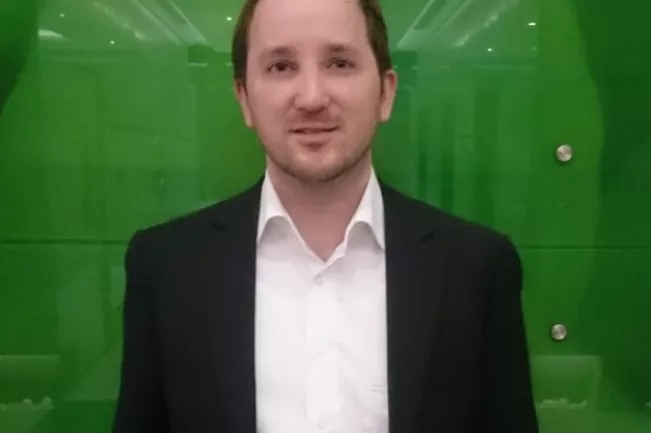
The following text originally appeared in ‘doppelpunkt:’ in 2010 with the title ‘Hardly any side effects thanks to DNA’. In 2016, we asked Moritz Eidens what he had done since then. You can recognise the added passages by the cursive print.
Every year, around 16,000 people die from the side effects of medication. A team consisting of graduates and former employees of Hochschule Bonn-Rhein-Sieg has tackled this problem. The result is a new and innovative company at the interface of pharmacy and genetics. The Mainz bioscientists' innovative product: the PharmGenomics MutaChip.
During their bachelor's thesis, Rheinbach biology students Moritz Eidens and Stefan Prause recognised an important problem in modern medicine: not every person tolerates every drug equally well, and one of the reasons for this lies in the genetic differences from person to person, known as polymorphisms. Human DNA not only regulates our development, it also determines the blueprint for our metabolism. Here, small variations can mean that certain drugs cannot be broken down properly and damage the body over time. It is possible to analyse these specific genetic variants, but unfortunately such testing procedures are usually lengthy and expensive.
A favourable test that provides information
This is exactly where the former students started and, during their Master's thesis, worked on the development of a quick and inexpensive genetic test that allows a statement to be made about whether a person can tolerate a drug well or must expect considerable side effects before starting therapy. ‘We develop diagnostic tools here,’ says Stefan Prause, summarising the bioscientists' current work.
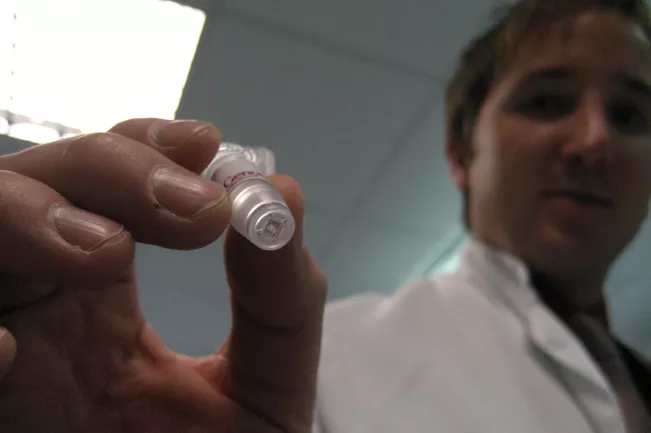
Well prepared thanks to the degree programme
The university's Applied Biology degree programme not only aims to impart sound knowledge, but also to establish a link to practical work from the outset, whether through laboratory work or by practising presentation techniques in English.
‘During our studies, we learnt to think and work in a practice-oriented way,’ says Moritz Eidens. Today, these advantages of practical relevance can be seen not only in the great benefits of the new product for medical diagnosis, but also in the logical path to the founding of PharmGenomics.
Not only researching products, but also developing them
Anyone who thinks that scientists don't understand much about entrepreneurial thinking will immediately be proven wrong during a conversation with the company founders. The company idea is based on clear objectives and professional realisation. ‘We have the clearly defined goal of developing products from research,’ says Eidens.
PharmGenomics' product is a three by three millimetre ‘DNA chip’ that can test certain gene variants in a patient. All that is needed is a little of the patient's blood. The bioscientists initially focussed on testing chemotherapy drugs for the treatment of colon and breast cancer.
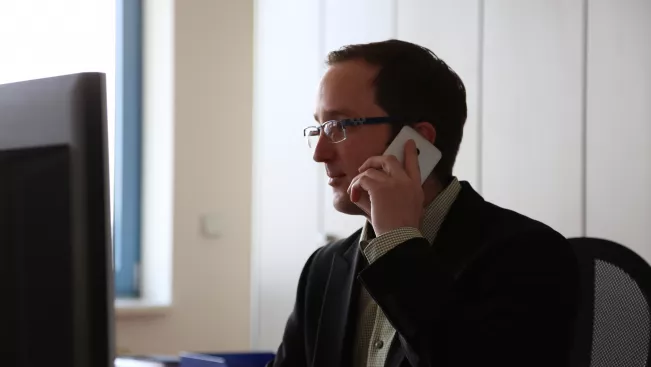
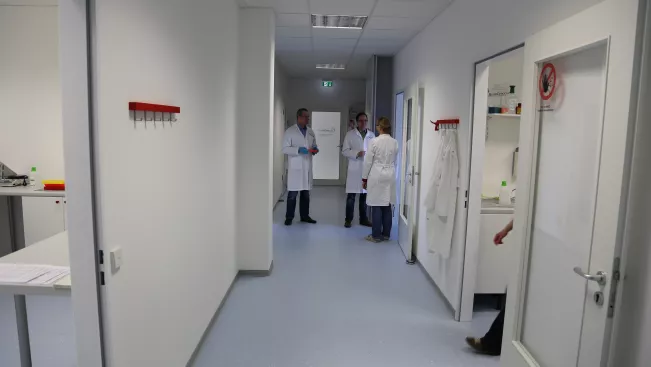
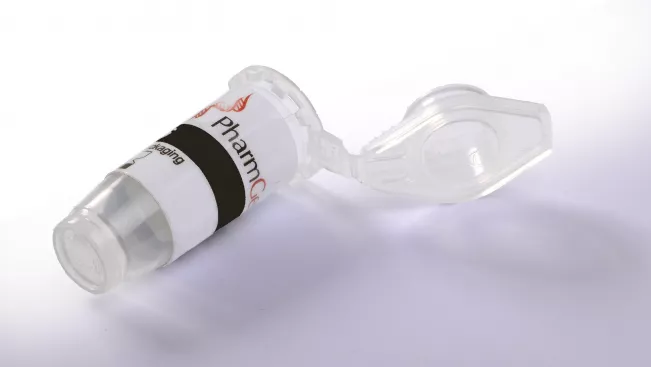
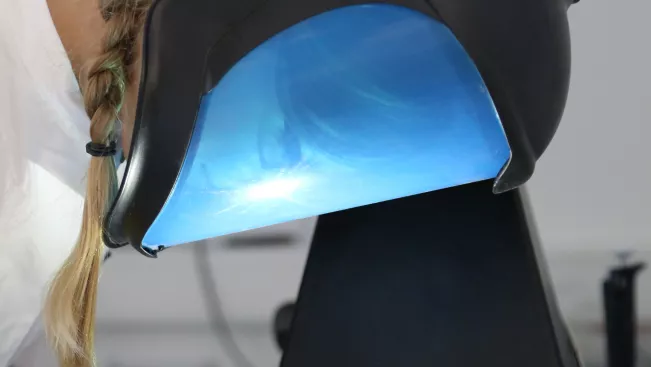
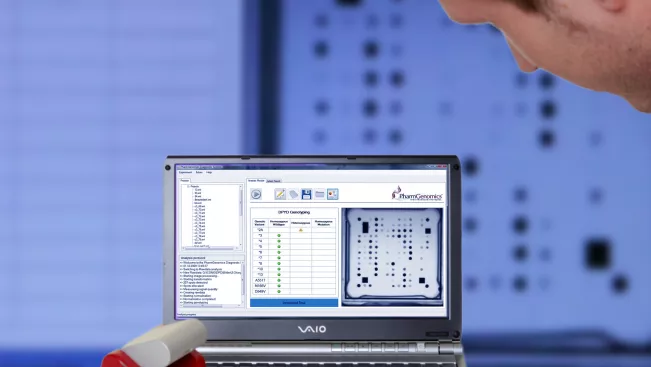
The picture gallery shows impressions of everyday life in the company.
The long road to your own organic business
Nevertheless, setting up a new organic company doesn't just fall into your lap. Stefan Prause and Moritz Eidens had already been dealing with business management issues during their studies. Thanks to the support of NUK, a network for company founders, they were able to acquire the expertise that was important and useful for many further decisions along the way. The university submitted its business plan to the nationwide EXIST funding programme. The commission of the funding competition was also convinced by the overall concept and approved funding, which ultimately led to the founding of PharmGenomics GmbH in Mainz. The choice of location was made by Andreas Pfützner, former professor at the university and founder of the Institute for Clinical Research and Development. He is one of the four partners in PharmGenomics and supports the biotech company's developments.
PharmGenomics has now expanded its product range: the biologists have developed a new test that recognises viruses and bacteria in the lungs (again using a DNA chip). The test allows a quick and differentiated diagnosis and also provides information on which bacterial strain may be present. The test thus supports the decision in favour of a specific antibiotic therapy and, last but not least, helps to decide whether an antibiotic needs to be taken - or not, if the illness is ‘only’ caused by a virus.
The company is now accredited as a medical laboratory (in accordance with EN-ISO 15189) and certified as a medical device manufacturer in accordance with ISO 13485 and DIN 9001. PharmGenomics has been outsourcing its sales activities for several years now - Eidens and his colleagues prefer to focus more on development themselves.
At the 2016 ‘Biotechnology Days’ in Leipzig, they are presenting their latest development: a lateral flow-based rapid test that recognises a genetic hypersensitivity to a drug frequently administered in HIV infections. In the worst case, this so-called abacavir hypersensitivity reaction can be fatal for the patient. The test developed by Eidens and his team recognises the corresponding predisposition within 20 minutes using a saliva sample. This means that an intolerance reaction can be ruled out with a high degree of certainty.
PharmGenomics awards theses
A company like this also opens up new opportunities for young scientists. PharmGenomics is now so well established that students can work here as part of a final thesis or in seminars and study projects, or continue their education. One of the company's systems is now in use at H-BRS in the practical courses on the Applied Biology programme, as Eidens is still in good contact with some of the professors from the past.
‘During your studies, you should think about topics for your Bachelor's and Master's thesis early on and try to do them in companies,’ advises Stefan Prause. Eidens also encourages students to think analytically and, above all, independently. The two are the best example of the success of such an attitude.
And how does biotech entrepreneur Moritz Eidens prefer to switch off? Fortunately, he doesn't need to develop a quick test to find the best way to leave work stress behind. His therapy is simple but effective: jogging or fishing on the Rhine and playing football with his mates. Any hypersensitivity reactions are ruled out.
Text: David Appel
Additions 2016: Barbara Wieners-Horst
Contact

Jana Schuster, M.A.
Assistant to the dean , Public relations and marketing, Budget officer, M.A.

Barbara Wieners-Horst
Referentin Alumni-Management | Alumni Coordinator
Location
Sankt Augustin
Room
E 238
Address
Grantham-Allee 20
53757, Sankt Augustin
Telephone
+49 2241 865 9603